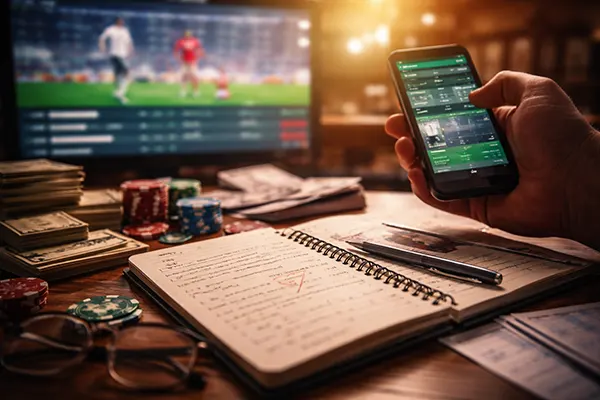Psychology of Betting: How Emotions Influence Decision-Making in Gambling

Emotions play a crucial role in decision-making, especially in the world of betting and gambling. Understanding the psychology of betting helps bettors recognise and control the emotional influences that can sway their choices. This article delves into the impact of emotions on betting decisions, offering insights and strategies for managing emotional responses to achieve better outcomes.
Emotional Reaction to Winning and Its Impact on Future Bets
The thrill of winning can lead to a powerful emotional response, often resulting in a surge of self-confidence. When a player experiences a win, there’s a tendency to believe that the success can be replicated easily, regardless of objective analysis or probability. This phenomenon, known as the “overconfidence effect,” can create a false sense of control and encourage bettors to take bigger risks, increasing the likelihood of significant financial losses.
Overconfidence can also prompt a pattern of impulsive betting behaviour, where the bettor starts to disregard logical analysis in favour of the emotional high associated with winning. In such situations, even minor gains may fuel further risky bets, as players chase that initial feeling of success. Recognising this reaction is essential, as unchecked confidence may turn into a habit that results in accumulating losses rather than sustained gains.
Methods to Manage Emotions After Winning
To mitigate overconfidence, bettors should consider recording their wins and setting clear limits for themselves. This practice of documenting each successful bet can help provide a more balanced perspective on their actual performance. Additionally, pre-planning betting activities with predetermined limits can prevent impulsive, emotionally driven decisions aimed solely at satisfying the excitement of the moment.
One effective approach is to establish a “cooling-off” period after a win, allowing time for emotional excitement to subside. Bettors may also benefit from taking a step back and analysing their winning patterns to ensure that subsequent bets are informed and not influenced solely by recent victories. This approach enables players to enjoy the excitement of winning while maintaining a rational strategy for long-term success.
The Influence of Loss Aversion on Decision-Making
Loss aversion is another significant emotional factor impacting betting decisions. This refers to the tendency of people to feel the pain of losing more intensely than the pleasure of winning. In gambling, this fear of loss can prompt players to make decisions driven more by the desire to recover what they’ve lost than by sound analysis. This impulse, often termed “chasing losses,” is particularly risky, as it can lead to further emotional betting that results in even greater losses.
The emotional weight of loss aversion often creates a cycle of reactive betting, where a player repeatedly places risky bets to compensate for their previous losses. In these cases, bettors may abandon their original strategy and opt for high-stakes bets in an attempt to “break even.” This response not only increases the likelihood of financial loss but also intensifies feelings of frustration, stress, and desperation, which can cloud judgment further.
Strategies to Manage Loss Aversion
One of the most effective ways to handle loss aversion is by setting realistic goals and financial limits. Bettors should recognise that losses are an inevitable part of gambling and establish rules to prevent emotional responses from dictating their actions. Setting clear and reasonable goals allows players to maintain control, helping them avoid rash decisions motivated by loss recovery.
Implementing self-imposed limits on both time and spending can also help manage the urge to chase losses. By accepting losses as a normal aspect of the betting process, players can step back and review their strategy without the influence of emotions. Taking regular breaks, practicing mindfulness, and reflecting on previous betting behaviour can also aid in reducing the emotional impact of losses.

The Impact of Stress and Time Pressure on Betting Choices
Stress and time pressure are common factors that can lead to impulsive betting choices, especially when betting in real-time or during live events. In such high-pressure situations, bettors may focus on short-term gains rather than considering the long-term outcomes of their actions. When under stress, the mind’s natural reaction is often to seek immediate gratification, which can override rational judgment and lead to unplanned, high-risk bets.
The added time pressure of live events can amplify stress, making it difficult for players to thoroughly evaluate their choices. The combination of stress and time constraints often leads to a “tunnel vision” effect, where the bettor becomes overly focused on immediate outcomes, ignoring broader considerations. This can be particularly problematic when betting large amounts, as the stakes heighten the emotional response and further impair decision-making abilities.
Techniques to Reduce Stress During Betting
To avoid the negative effects of stress and time pressure, it is essential to incorporate stress-reduction techniques into the betting process. Taking regular breaks and allowing oneself time to think clearly before placing a bet can significantly reduce stress levels. Breathing exercises, meditation, and other relaxation practices are also beneficial for maintaining a calm, focused state of mind.
In high-pressure betting situations, one approach is to set pre-defined time intervals for betting decisions, allowing the bettor to step away and reassess their strategy periodically. This practice of taking a “time-out” can help regain perspective and prevent the urge to place impulsive bets driven by the stress of the moment. By learning to control stress, bettors can make more measured decisions and avoid unnecessary risks.
Read also
-
 Betting on Fouls: How to Build a Forecast Without Relying...
Betting on Fouls: How to Build a Forecast Without Relying...Fouls betting has become one of the most underestimated yet …
-
 Healthy Gaming Habits in 2026: Balancing Casino Play and ...
Healthy Gaming Habits in 2026: Balancing Casino Play and ...Responsible gambling in 2026 is no longer limited to deposit …
-
 Anti-tilt guide: what to do after a losing streak (withou...
Anti-tilt guide: what to do after a losing streak (withou...A losing streak in sports betting is not automatically a …
-
 Market Liquidity in Live Betting: How It Changes the Fair...
Market Liquidity in Live Betting: How It Changes the Fair...In live (in-play) sports betting, odds can change several times …
